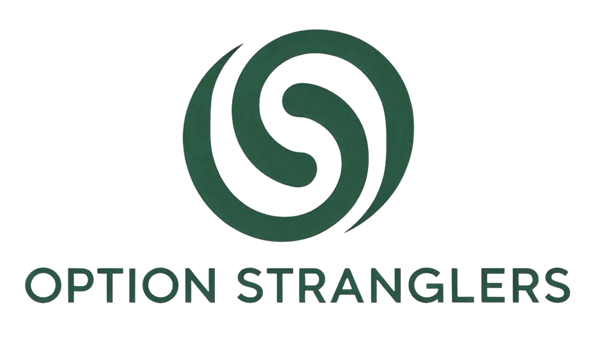
Building a Technical Toolkit for Options Trading
Keywords: technical analysis for options trading, best indicators for options traders, options technical toolkit, technical trading platform integration, options trading chart tools
🔍 Introduction: Why Technical Tools Matter for Options Traders
Options trading is all about precision. Every second counts. Every price level matters. And when it comes to maximizing returns and minimizing risk, technical analysis is the lifeblood of successful options strategies.
Building a technical toolkit isn't about using every indicator—it's about knowing which tools give you a trading edge and how to apply them. Whether you’re buying calls before a breakout or selling spreads on overbought setups, the right chart signals can make all the difference.
In this guide, you’ll learn:
- Which technical tools matter most for options traders
- How to use them to improve entry, exit, and probability
- How to integrate them into your favorite platforms
Let’s get into the charts.
🛠️ Section 1: Key Technical Tools Every Options Trader Should Use
📏 1. Moving Averages (MA / EMA / SMA)
What it does: Smooths price data to identify trends
How options traders use it:
- Use the 20-day and 50-day EMAs to confirm bullish/bearish trends
- Look for crossover signals (Golden Cross / Death Cross)
- Pair with momentum indicators for entry signals
📈 2. Relative Strength Index (RSI)
What it does: Measures overbought/oversold levels
How options traders use it:
- Sell credit spreads when RSI is overbought (>70)
- Buy calls or puts when RSI shows strong reversals from extremes
- Confirm directional setups with price action
🔄 3. Implied Volatility Rank (IVR) and IV Percentile
What it does: Compares current implied volatility to historical range
How options traders use it:
- Sell options when IVR is high (premium rich)
- Buy options when IVR is low (cheap volatility)
- Combine with Bollinger Bands or trend setups for high-probability trades
💡 4. Bollinger Bands
What it does: Measures price volatility around a moving average
How options traders use it:
- Identify range-bound stocks for iron condors or strangles
- Trade breakouts using outside band closes
- Watch for mean-reversion setups around earnings
🔼 5. MACD (Moving Average Convergence Divergence)
What it does: Shows momentum shifts via MA crossovers
How options traders use it:
- Use MACD histograms to gauge trend strength
- Pair with directional vertical spreads
- Avoid entries during divergence or weakening trends
🎯 6. Support and Resistance Zones
What it does: Identifies psychological price levels where price tends to react
How options traders use it:
- Sell calls above resistance, puts below support
- Use confluence with volume profile or Fibonacci levels
- Great for range plays and neutral income strategies
🔎 7. Volume and Volume Profile
What it does: Measures market participation at price levels
How options traders use it:
- Confirm breakout or breakdown strength
- Identify high-volume nodes for support/resistance
- Combine with momentum for entry timing
⏱️ 8. ATR (Average True Range)
What it does: Measures daily price movement range
How options traders use it:
- Time exits on fast-moving trades
- Adjust stop-loss and position sizing
- Filter low-ATR names for better option premiums
💡 Section 2: How to Use Technical Tools for Options Edge
🎯 Trade Entry Timing
- Use MA crossovers and RSI for confirmation
- Align trade with IV conditions (e.g., buy when IV is low)
- Combine with volume for high-conviction setups
⛔ Trade Avoidance Signals
- Mixed indicators = no trade
- Divergence between price and MACD
- RSI and IV giving conflicting messages
🔁 Rolling and Adjusting Trades
- Use support/resistance to pick new strikes
- Watch ATR for how far the underlying could move
- Shift strikes based on momentum or trend reversals
📅 Time-Based Adjustments
- Use daily charts for swing trades
- Use 1-hour or 4-hour for short-term options
- Overlay trend tools on multiple timeframes
🧩 Section 3: Platform Integration Tips
💻 Thinkorswim (TD Ameritrade)
- Custom scripts for IV Rank, RSI/MACD crossover alerts
- Flexible charting with overlays and studies
- Great for volume profile and thinkScript strategies
💻 TradingView
- Excellent for visual clarity
- Hundreds of community-built indicators
- Set alerts for MA crosses, RSI levels, Bollinger Band breaks
💻 Tastytrade
- Streamlined for options-focused traders
- Built-in IV Rank tools and P/L probability curves
- Use charts + trade setup tabs for quick execution
💻 Moomoo / Tiger Brokers (SG)
- Advanced charting tools
- Customize layouts to combine RSI, MACD, and volume
- Watchlists with technical flagging
🧰 Options Trader’s Technical Toolkit Infographic

🚀 Final Thoughts: Your Toolkit, Your Trading Edge
The market doesn’t reward clutter. The best traders rely on a few trusted tools they know inside and out. By building your options-specific technical toolkit, you:
- Improve trade timing and precision
- Avoid low-probability setups
- Align entries with volatility and risk profiles
Use the tools consistently. Journal results. Refine based on your edge.
And remember: the best trades often come from the cleanest charts.
✅ Ready to Trade Smarter, Not Harder?
At www.optionstranglers.com.sg we offer:
- ✅ In-depth live 1-1 sessions / group classes
- ✅ Trade examples and breakdowns
- ✅ Community mentorship and support
👉 Ready to upgrade your strategy and trade like a pro?
Visit www.optionstranglers.com.sg and start your journey to financial freedom today.
Your future is an option. Choose wisely.
⚠️ Disclaimer:
Options involve risk and are not suitable for all investors. Always consult with a financial advisor before investing.
